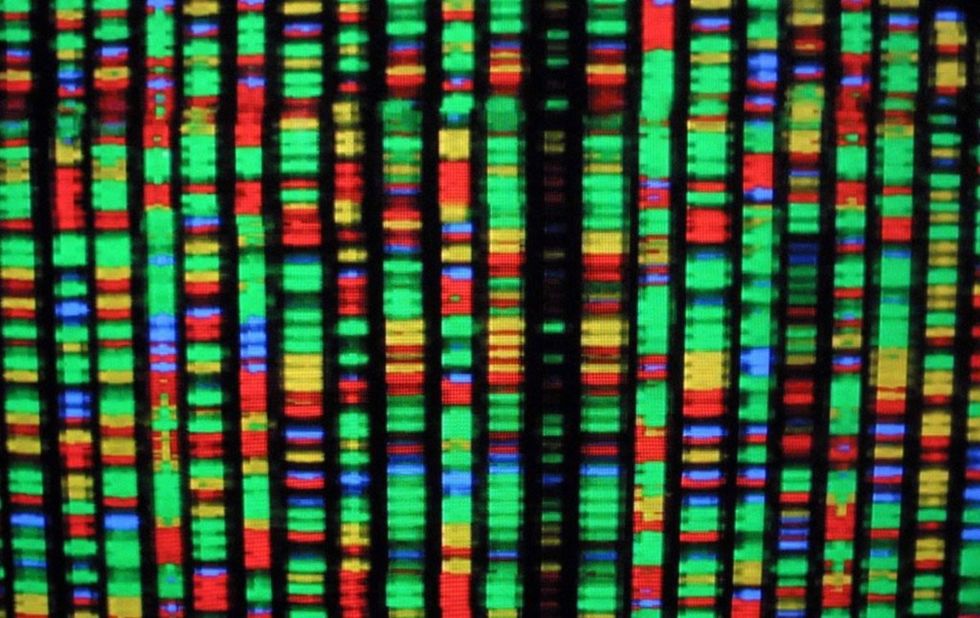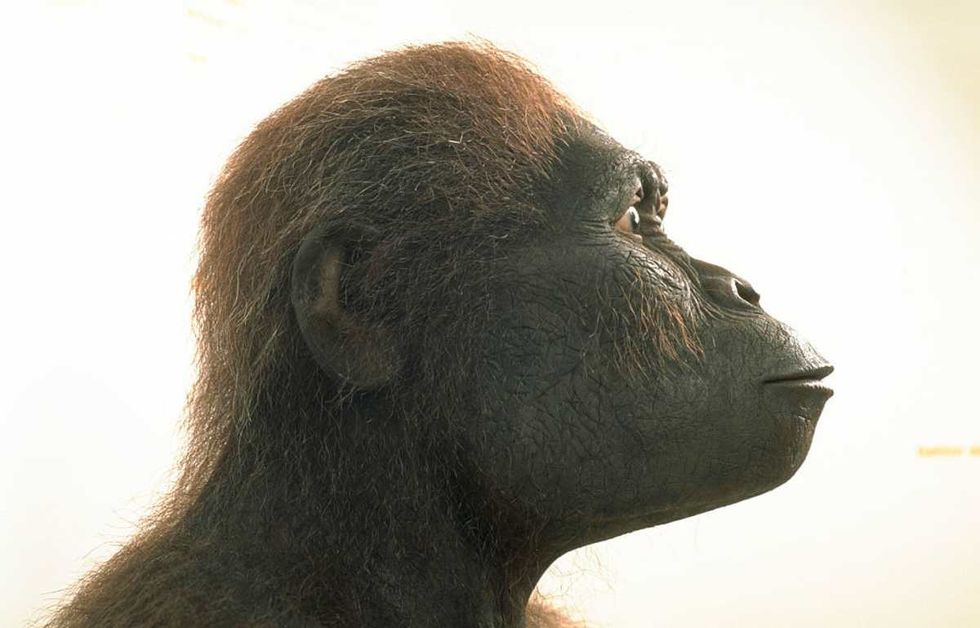Family trees have been around for decades, primarily used to trace ancestors and past generations. But some theories suggest that everyone on Earth shares a common ancestor. Researchers at the University of Oxford’s Big Data Institute explored this idea and reached a mind-boggling conclusion: they uncovered a single genealogy that connects all of humanity. Published in the journal Science, the study shows how individuals across the globe are linked by a shared ancestry.

The researchers combined data from multiple sources, analyzing millions of genome sequences, according to an official press release. They used data on both modern and ancient human genomes from eight databases, covering 3,609 individual sequences from 215 populations. The study revealed that while human beings are diverse, we all share a surprising common connection.
Dr Yan Wong, an evolutionary geneticist at the Big Data Institute, and one of the principal authors, explained, “We have built a huge family tree, a genealogy for all of humanity that models as exactly as we can the history that generated all the genetic variation we find in humans today. This genealogy allows us to see how every person’s genetic sequence relates to every other, along all the points of the genome.”

Anthony Wilder Wohns, lead author of the study, explained that the oldest roots of human genetic variations can be traced to Northeastern Africa. However, this is likely a long time before the species originated, per Reuters. Wohns explained, “The very earliest ancestors we identify trace back in time to a geographic location that is in modern Sudan. These ancestors lived up to and over one million years ago - which is much older than current estimates for the age of Homo sapiens - 250,000 to 300,000 years ago. So bits of our genome have been inherited from individuals who we wouldn't recognize as modern humans.”
This lineage is likely to have come from the “Homo erectus,” a species that lived over 1.9 to 110,000 years ago, as per Smithsonian's Human Origins. The Homo erectus species shared body proportions very similar to what we possess today. Wohns added that their research led them to surprisingly discover that even extinct human species like the Denisovans and Neanderthals left genetic descendants among modern-day people around the world. The study allowed researchers to understand aspects of genetic mutation, which is likely how ancestors passed down their genetics over the years. It also allowed them to “estimate the date and approximate geographic location of ancestors.”

Other studies point out the idea that several ancestors left Africa during different periods in history. This is dated to around 72,000 years ago. It is possible that the ancestors then settled in parts of America and other areas way before the idea of archaeological evidence of human presence came into play. "Our method estimated that there were ancestors in the Americas by 56,000 years ago. We also estimated significant numbers of human ancestors in Oceania - specifically Papua New Guinea - by 140,000 years ago," Wohns explained. However, the researchers add that the same is not considered concrete evidence. "The story of humanity is written in our genes and reconstructing our genealogy allows us to read that history,” Wohns exclaimed.
This article originally appeared 2 months ago.

















 Pexels | Photo by Andrea Piacquadio
Pexels | Photo by Andrea Piacquadio
 An Atlantic grey seal looking at the camera underwater. (Representative Image Source: Getty Images | Mark Chivers)
An Atlantic grey seal looking at the camera underwater. (Representative Image Source: Getty Images | Mark Chivers) A grey seal swims up to a scuba diver. (Representative Image Source: Getty Images | Huw Thomas)
A grey seal swims up to a scuba diver. (Representative Image Source: Getty Images | Huw Thomas) A Grey seal nibbles at the hood of a scuba diver. (Representative Image Source: Getty Images | Bernard Radvaner)
A Grey seal nibbles at the hood of a scuba diver. (Representative Image Source: Getty Images | Bernard Radvaner)
 Image Source: Seth Rogen and Lauren Miller Rogen co-host the HFC Austin Brain Health Dinner on September 30, 2023, in Austin, Texas. (Photo by Rick Kern/Getty Images for Hilarity for Charity)
Image Source: Seth Rogen and Lauren Miller Rogen co-host the HFC Austin Brain Health Dinner on September 30, 2023, in Austin, Texas. (Photo by Rick Kern/Getty Images for Hilarity for Charity) Image Source: Seth Rogen and Lauren Miller Rogen attend the 95th Annual Academy Awards on March 12, 2023 in Hollywood, California. (Photo by Arturo Holmes/Getty Images )
Image Source: Seth Rogen and Lauren Miller Rogen attend the 95th Annual Academy Awards on March 12, 2023 in Hollywood, California. (Photo by Arturo Holmes/Getty Images ) Image Source: YouTube |
Image Source: YouTube |  Image Source: YouTube |
Image Source: YouTube | 
 Image Source: In this handout photo provided by the National Science Foundation, the Event Horizon Telescope captures a black hole at the center of galaxy M87 in an image released on April 10, 2019. (National Science Foundation via Getty Images)
Image Source: In this handout photo provided by the National Science Foundation, the Event Horizon Telescope captures a black hole at the center of galaxy M87 in an image released on April 10, 2019. (National Science Foundation via Getty Images)
 Representational Image Source: Pexels I Photo by Nataliya Vaitkevich
Representational Image Source: Pexels I Photo by Nataliya Vaitkevich Representative Image Source: Pexels | Kampus Production
Representative Image Source: Pexels | Kampus Production
 Image Source: Destroyed vehicles lie near the rubble after the earthquake and tsunami devastated the area on March 16, 2011, in Minamisanriku, Japan. The 9.0 magnitude strong earthquake struck offshore on March 11 at 2:46 pm local time, triggering a tsunami wave of up to ten meters which engulfed large parts of north-eastern Japan. (Photo by Chris McGrath/Getty Images)
Image Source: Destroyed vehicles lie near the rubble after the earthquake and tsunami devastated the area on March 16, 2011, in Minamisanriku, Japan. The 9.0 magnitude strong earthquake struck offshore on March 11 at 2:46 pm local time, triggering a tsunami wave of up to ten meters which engulfed large parts of north-eastern Japan. (Photo by Chris McGrath/Getty Images) Representative Image Source: Pexels | Pixabay
Representative Image Source: Pexels | Pixabay Representative Image Source: Pexels | Stuart Pritchards
Representative Image Source: Pexels | Stuart Pritchards
 Image Source: Musician Keith Urban and actress Nicole Kidman arrive at the 2009 American Music Awards at Nokia Theatre L.A. Live on November 22, 2009 in Los Angeles, California. (Photo by Jeffrey Mayer/WireImage)
Image Source: Musician Keith Urban and actress Nicole Kidman arrive at the 2009 American Music Awards at Nokia Theatre L.A. Live on November 22, 2009 in Los Angeles, California. (Photo by Jeffrey Mayer/WireImage) Image Source: Keith Urban and Nicole Kidman attend The 2024 Met Gala on May 06, 2024 in New York City. (Photo by John Shearer/WireImage)
Image Source: Keith Urban and Nicole Kidman attend The 2024 Met Gala on May 06, 2024 in New York City. (Photo by John Shearer/WireImage) Image Source: Musician Keith Urban and actress Nicole Kidman arrive at the Oscars on February 24, 2013 in Hollywood, California. (Photo by Jeff Vespa/WireImage)
Image Source: Musician Keith Urban and actress Nicole Kidman arrive at the Oscars on February 24, 2013 in Hollywood, California. (Photo by Jeff Vespa/WireImage)
 Representative Image Source: Pexels | August de Richelieu
Representative Image Source: Pexels | August de Richelieu Representative Image Source: Pexels | August de Richelieu
Representative Image Source: Pexels | August de Richelieu Representative Image Source: Pexels | Djordje Vezilic
Representative Image Source: Pexels | Djordje Vezilic Representative Image Source: Pexels | Fauxels
Representative Image Source: Pexels | Fauxels